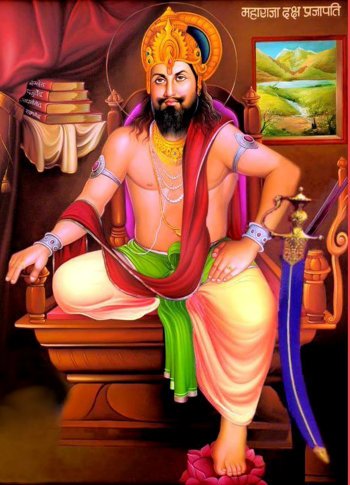Explore Gotras

Daksha: A Revered Figure in Hindu Tradition
Daksha is one of the most prominent Prajapatis (progenitors of creation) in Hindu tradition and plays a crucial role in Vedic and Puranic literature. He is known for his contributions to creation, governance, and discipline, as well as for being the father of Sati, the first wife of Lord Shiva. His stories emphasize duty, discipline, and devotion, as well as the consequences of ego and arrogance in spiritual life.
1. Origins and Lineage
- Daksha as a Prajapati: Daksha is one of the Manasaputras (mind-born sons) of Lord Brahma, making him a key figure in the creation of the universe. He is often described as one of the Prajapatis, entrusted with the task of populating the world.
- Parents: He was born from the mind of Lord Brahma and is therefore one of his direct mental offspring.
- Association with Gotra: The Daksha Gotra is associated with him, and many Brahmin lineages trace their ancestry to Prajapati Daksha.
2. Daksha’s Role in Hindu Mythology
- Daksha’s Contributions: He played a vital role in expanding the universe and governing creation. He is often depicted as a strict administrator and upholder of order and dharma.
- The Story of Daksha and Sati:
- Daksha’s daughter, Sati, married Lord Shiva, despite Daksha’s disapproval.
- In an act of arrogance and ego, Daksha organized a grand yajna (sacrifice) but deliberately did not invite Shiva.
- Sati, deeply hurt, immolated herself in the fire, leading to Daksha’s downfall.
- An enraged Lord Shiva destroyed the yajna and beheaded Daksha, later reviving him but giving him the head of a goat as a reminder of his ego and mistakes.
- This story is one of the most significant events in Hindu mythology, highlighting the consequences of pride and the power of devotion.
3. Daksha’s Contribution to the Vedic Tradition
- Vedic Knowledge and Teachings:
- Daksha is associated with the establishment of many Vedic rituals and sacrifices (yajnas).
- He emphasized discipline, governance, and responsibility in spiritual and worldly affairs.
- Creation and Expansion of Life:
- He is credited with the creation of various beings, including devas (gods), asuras (demons), and humans.
- His teachings formed the foundation of governance, order, and duties (dharma) in Hindu philosophy.
4. Daksha’s Role in Hindu Tradition
- Role as a Creator and Administrator: He ensured the expansion of creation, set moral guidelines, and upheld order and discipline.
- Influence on Yajnas and Rituals:
- Despite his downfall due to ego, he played a major role in perfecting the rituals and sacrifices (yajnas) that form the core of Vedic practices.
- His story teaches the importance of humility and devotion over arrogance and pride.
5. Daksha Gotra
- Daksha Gotra: Many Brahmin lineages follow the Daksha Gotra, linking their ancestry to Prajapati Daksha.
- Marital Traditions: As per Hindu customs, individuals from the same Gotra are traditionally prohibited from marrying each other, as they are considered to share a common lineage.
6. Daksha’s Influence in Hinduism
- Spiritual Legacy: His role in creation, governance, and yajnas continues to influence Hindu traditions and rituals.
- Impact on Hindu Thought:
- Daksha’s story warns against arrogance and pride, showing how spiritual wisdom must be balanced with humility and devotion.
- His conflict with Shiva represents the eternal balance between duty and divine love.
7. Conclusion
Prajapati Daksha remains a powerful figure in Hindu tradition, known for his role in creation, discipline, and the establishment of rituals. His conflict with Lord Shiva and Sati’s sacrifice serves as a timeless lesson on the consequences of ego and the supremacy of devotion. Despite his mistakes, his contributions to Vedic knowledge and governance continue to shape Hindu spiritual and ritualistic practices.
